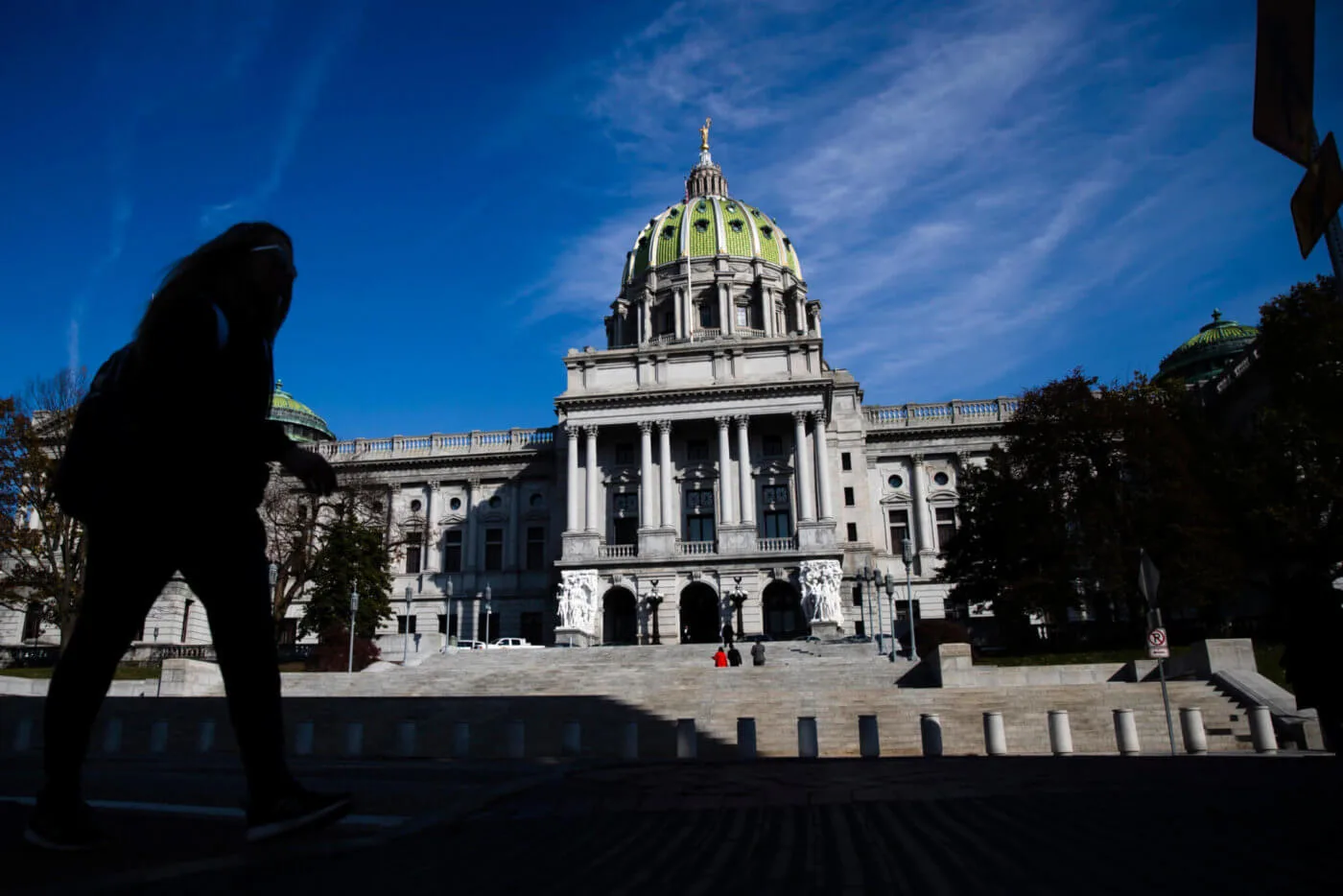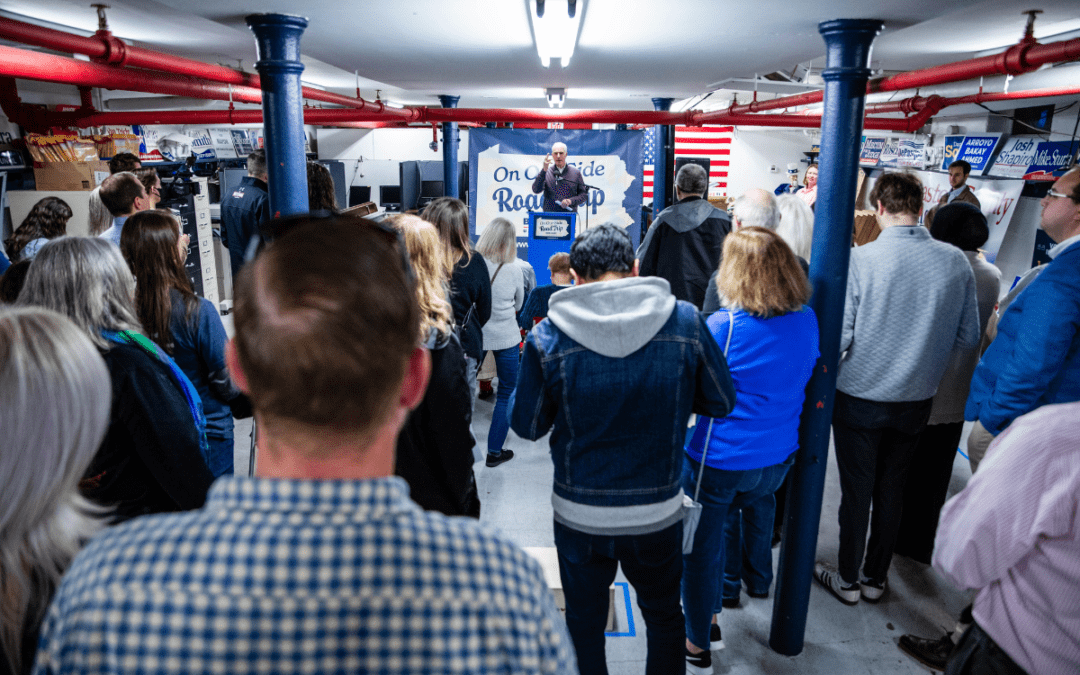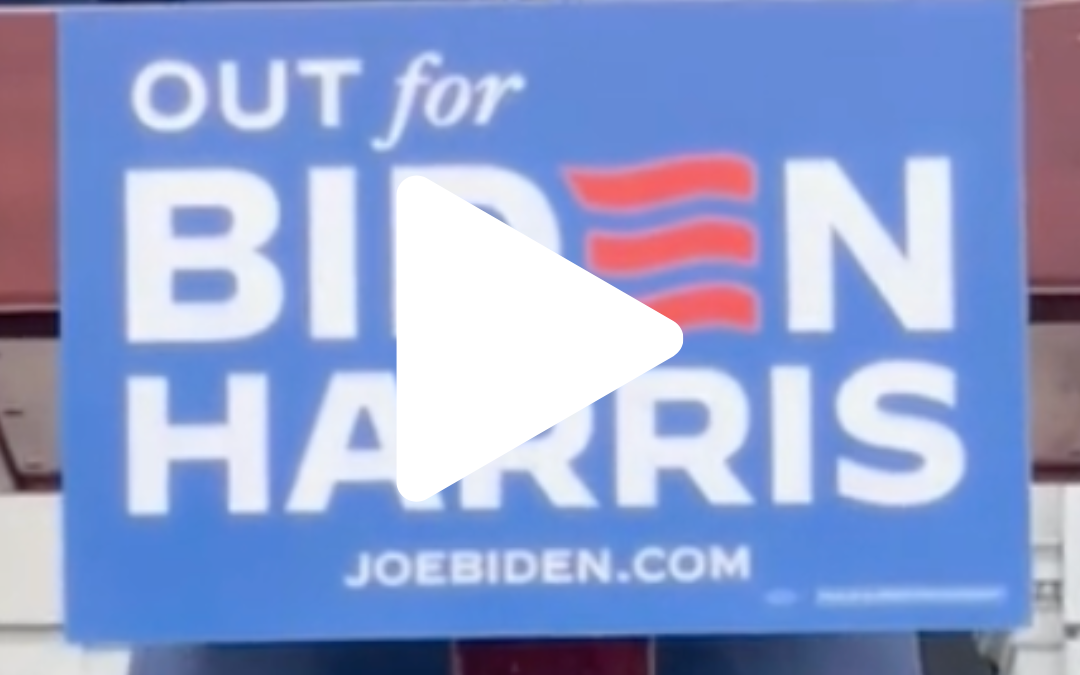
FILE- In this file photo from Nov. 19, 2019, a man is silhouetted in the shade as he walks by the Pennsylvania Capitol in Harrisburg, Pa. (AP Photo/Matt Rourke, File)
From pandemic relief to election laws, Republican leaders in the state Legislature continue to ignore Democrats.
Being in the minority party in Harrisburg isn’t easy. The other side has all the levers of power. They control what bills are introduced, and which ones stay stuffed in a desk.
Democrats should be used to that; it’s been more than three decades since they have held a consistent majority in the state’s capital.
“The minority has its say, but the majority very often gets its way,” said Will Patton, a spokesman for the House Democratic Caucus.
Democratic legislators, officials, and fundraisers often talk about the unwillingness of Republicans to work with them. Democrats have spent the last 17 months proposing ideas on how to deal with the pandemic, election, and other issues, only to have them ignored by the majority party.
Democrats had big plans for using coronavirus relief funds from the federal government. They wanted to use it to help people who are hurting now. Republicans decided those people were better helped with that money stashed in a rainy day fund.
Democrats have proposed raising the minimum wage (one bill last session passed the Senate but died in a House committee), prohibiting discrimination against LGBTQ communities, removing specific references to “homosexuality” from the state crimes code, making child care more affordable for working parents, and requiring employers to make accommodations for pregnant women, among other things. And all of those proposals have died in committees led by Republicans.
Meanwhile, Republicans rolled out their own proposed changes to election laws, refusing to work with Democrats as they drafted the nearly 150-page bill.
“It’s getting worse because the extremism and partisanship has increased in recent years,” Patton said.
Patton brought up a 2018 Facebook rant by state Rep. Daryl Metcalfe, when the Butler County Republican said, “I block all substantive Democrat legislation sent to my committee and advance good Republican legislation!”
“The minority is pretty closed down,” said Christine Jacobs, the president of RepresentPA, an organization that invests in progressive women candidates.
She pointed out that leadership can stop a bill from reaching the floor for discussion, and committee chairs can limit Democrats from bringing in witnesses for hearings.
“For example it was only in the past year that the House committee on Energy and the Environment ever had a discussion on climate change,” Jacobs said. “And the only witness allowed by the majority was a climate change denier.”
The issue even came up earlier this year when state Sen. John Blake retired early from his seat to take a job with US Rep. Matt Cartwright’s (D-Lackawanna) office.
Blake told the Scranton Times-Tribune that being in the minority kept him and Democrats from being able to accomplish more.
Why Can’t Democrats Get Anything Through?
Republicans have controlled the state Senate every year but one since 1992.
Democrats have done a bit better in the House, having control during seven of those 30 years. Only once, in 1993, did Democrats control both legislative chambers and the governor’s mansion.
Now, there’s a Democratic governor who will veto anything he believes is bad policy that comes from Republicans. But Republicans are trying to get around him by proposing some legislation he vetoed—like voter ID—as referendums that would go before the people.
A History of Partisanship in Harrisburg
While partisanship has gotten worse, comparing it to elected officials in Washington, DC, it’s not new, said Robert Speel, an associate professor at Penn State Behrend in Erie.
It’s been prominent when it comes to budget issues for a while. It might have even been worse on that topic, Speel said.
“During Ed Rendell’s eight years as Democratic governor, the July 1 budget deadline was missed every year,” he said.
While Speel said some fault lies with both parties, the end result is that people feel left out of the process.
“An unwillingness to work with a minority party that is making reasonable demands, requests, or suggestions,” he said, “also only causes frustration and anger among large numbers of voters and political leaders who feel they are ignored.”
Some Other Plans Democrats Have Proposed That Republicans Have Blocked
In May, state Rep. Mike Zabel put up an amendment that would have struck specific references to “homosexuality” from the state crimes code.
He expected enough Republicans to support the legislation that it would pass, but they didn’t.
The legislature’s LGBTQ+ Caucus is advocating for the Pennsylvania Fairness Act. It would ban “discrimination against an individual based on their sexual orientation or gender identity or expression.” Republicans have not allowed it to be introduced.
The spring and early summer also saw Democrats fight to protect voters’ rights, with their efforts often stymied by Republicans.
State Rep. Seth Grove (R-York) runs the state’s House Government Committee, which held several hearings about election reform. They were sparked by Grove’s allegiance to former President Donald Trump’s lies about the 2020 election.
At them, several county officials asked for assistance with things like precanvassing, the ability to begin opening exterior ballot envelopes so ballots are ready to be processed on Election Day. After the hearing, Grove didn’t work with Democrats on the committee.
Instead, Republicans put forward a bill that, while including precanvassing, also included voter ID laws, and cut down on the time voters had to request mail-in ballots and register before an election.
Gov. Tom Wolf vetoed that bill.
“The worst aspect of hyperpartisanship may be through attempts to maintain power through changes in election laws that favor one party over another,” Speel said. “That prevents majorities of Pennsylvanians from being able to change laws they don’t support.”
What Can Democrats Do?
Patton said state Democrats don’t have many options in the short term. But there is a long-term option: Winning more elections.
Jacobs said a big issue is getting voters to know what actually happens in Harrisburg.
“It is amazing the number of people who do not realize that legislation on the environment, education funding, infrastructure, minimum wage, and so many other issues are decided and controlled in Harrisburg,” she said.
She urged Democrats to get out and have face-to-face conversations with voters this year and through the election cycle that ends next November.
Speel also recommended direct interaction with voters, but in a different way.
He urged democrats to try to get as many issues in front of them as possible through referendums, the way Republicans have been trying to do. However, there is some risk that some Republican-backed policies will also be popular.
“If a majority of Pennsylvanians want recreational marijuana to be legal, that could be approved through a voter initiative,” Speel said. ”A majority of Pennsylvanians would likely approve voter initiatives that make it easier to vote, though (voters) might also support voter ID laws that Democrats tend to oppose.“
He also said gerrymandering reform—making sure electoral districts are drawn fairly and not to favor one party over another—is another part of the solution.
“Many states in recent years have abolished gerrymandered districts and replaced them through voter initiatives with non-partisan or bipartisan boundary commissions,” he said.
If Democrats don’t capitalize on the next election cycle in some way, they will continue to be stuck in the minority.
Politics

Bob Casey: Past time to reign in corporations ‘jacking up their prices’
US Sen Bob Casey continued calling out corporate greed and price gouging at a canvass launch in the City of Lancaster on Sunday. Maintaining the...

Susan Wild calls out Republicans for holding up Ukraine aid
‘It’s not only shameful, but embarassing.” That’s what US Rep. Susan Wild (D-Pennsylvania) had to say about the Republican-led US House’s...

He said what? 10 things to know about RFK Jr.
The Kennedy family has long been considered “Democratic royalty.” But Robert F. Kennedy, Jr.—son of Robert F. Kennedy, who was assassinated while...
Local News

Conjoined twins from Berks County die at age 62
Conjoined twins Lori and George Schappell, who pursued separate careers, interests and relationships during lives that defied medical expectations,...

Railroad agrees to $600 million settlement for fiery Ohio derailment, residents fear it’s not enough
Norfolk Southern has agreed to pay $600 million in a class-action lawsuit settlement for a fiery train derailment in February 2023 in eastern Ohio,...





